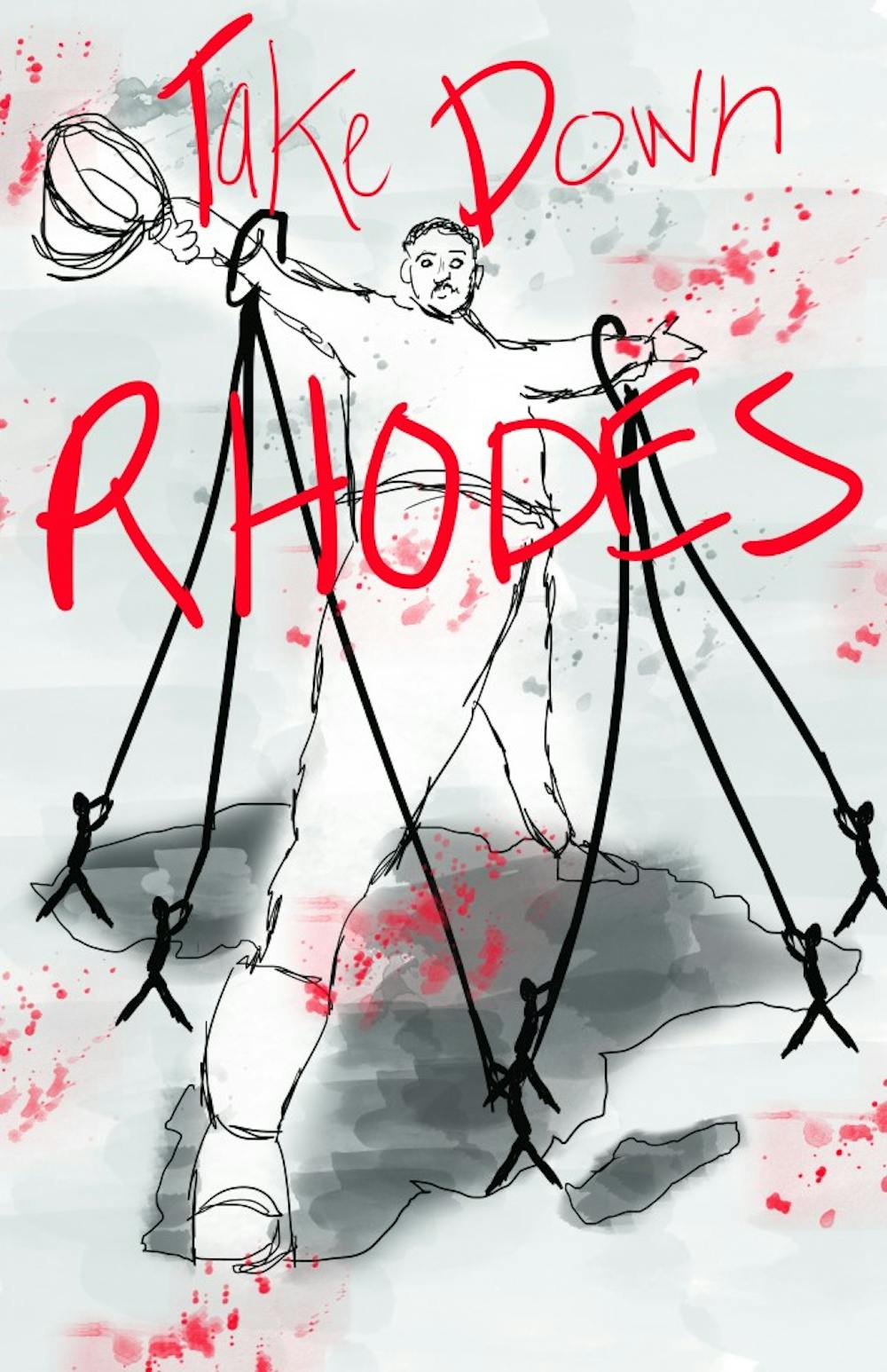Nineteenth-century business magnate Cecil Rhodes left an impressive educational legacy that has lasted until the present day.
But today he’s under scrutiny.
Though he’s widely known for his world-renowned Rhodes scholarship, the businessman-politician profited from a not-so philanthropic initiative — slavery, and a separation of races. This work had such lasting effects on history that Rhodes has been called the architect of apartheid by some.
In March 2015 students began protesting to remove the statue of Cecil Rhodes from the University of Cape Town. Built on an ideology to fight institutionalized racism, the “Rhodes Must Fall” protestors have occupied buildings and vandalized statues of Rhodes at UCT and other colleges such as Oxford University.
The removal of the statue has now become symbolic of a general dismantling of white supremacy.
One-third of the Oxford student body has called for the removal of the statue, according to Cherwell, Oxford’s student newspaper.
Despite these efforts, Oriel College, home of the Rhodes statue, has decided to keep the statue.
The Editorial Board believes the statue should stay on campus, but we should put the past in perspective.
We should honor Rhodes’ contributions to education while remembering the politician’s dark history.
Art from historically racist time periods has been preserved in similar ways. Eleven Warner Bros. cartoons of the 1940’s involving racism can be found online. These cartoons, referred to as the “Censored Eleven", were pulled off the air in 1968 and have never been circulated since.
When the cartoons were re-released for a screening in 2010, a disclaimer reminded viewers about the racism and discrimination of American society during that time period. This served to condemn those horrible views but present them as a way of remembering history.
For this reason, various other options, such as moving the statue to another part of Oxford’s campus, would seem like the school is trying to hide the past while still taking advantage of his endowment to the school.
A similar message should be conveyed in discussion of the statue of Cecil Rhodes. Students and faculty should be aware of the ethnic and racial prejudices of Rhodes’ legacy. This would allow students to acknowledge Rhodes’ contributions alongside his political views.
It would be a disservice to remove Rhodes’ statue from the campus and ignore his educational legacy.
The past can’t be justified, but it must be understood. Taking down the statue is similar to censoring Warner Bros. cartoons. It would be pushing the past back into history books and attempting to forget the wrongs, as well as the gifts that Rhodes left behind.
As Warner Bros. stated, to ignore the past would be the same as claiming these prejudices never existed.




